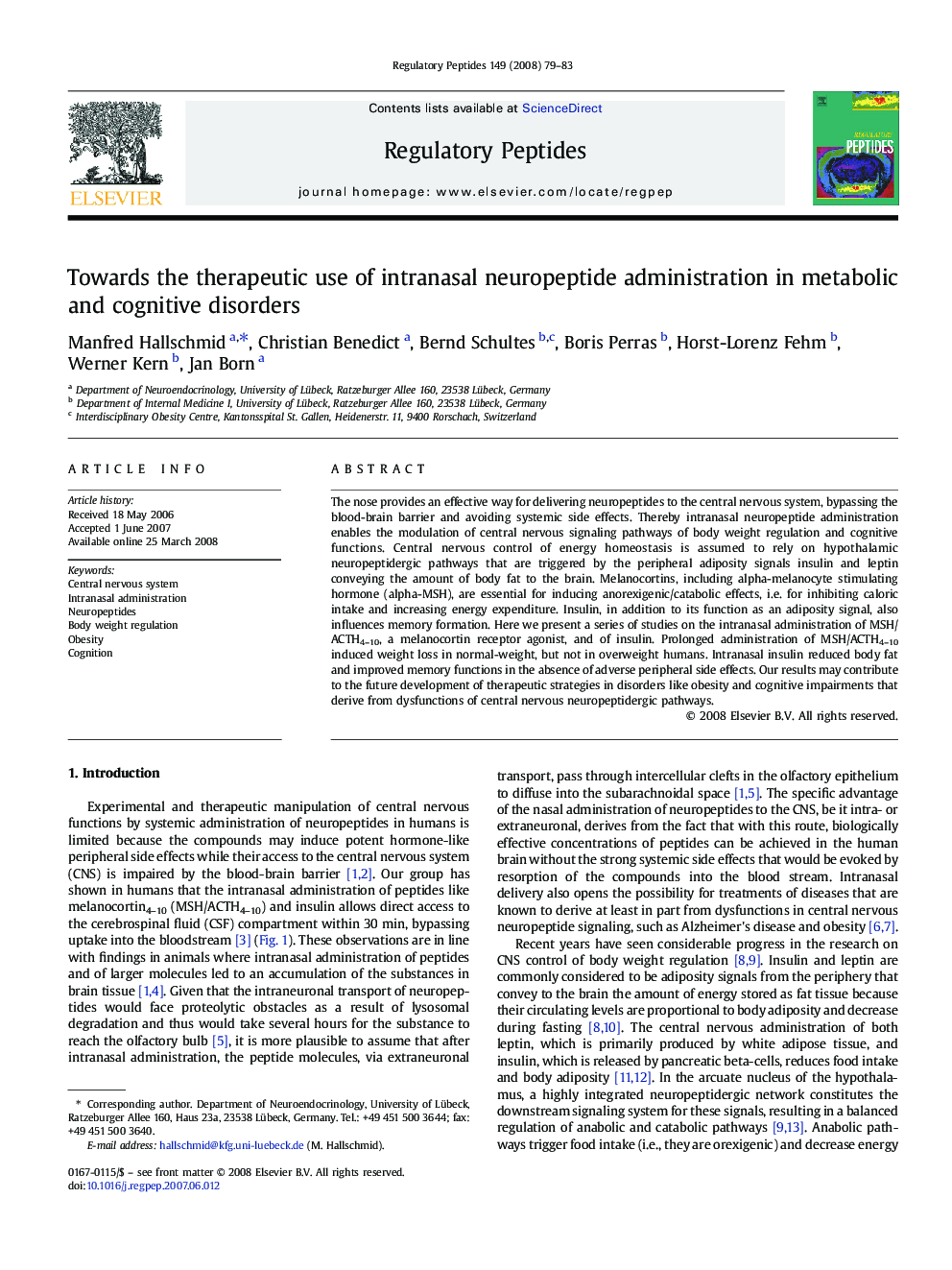| کد مقاله | کد نشریه | سال انتشار | مقاله انگلیسی | نسخه تمام متن |
|---|---|---|---|---|
| 2023140 | 1542436 | 2008 | 5 صفحه PDF | دانلود رایگان |

The nose provides an effective way for delivering neuropeptides to the central nervous system, bypassing the blood-brain barrier and avoiding systemic side effects. Thereby intranasal neuropeptide administration enables the modulation of central nervous signaling pathways of body weight regulation and cognitive functions. Central nervous control of energy homeostasis is assumed to rely on hypothalamic neuropeptidergic pathways that are triggered by the peripheral adiposity signals insulin and leptin conveying the amount of body fat to the brain. Melanocortins, including alpha-melanocyte stimulating hormone (alpha-MSH), are essential for inducing anorexigenic/catabolic effects, i.e. for inhibiting caloric intake and increasing energy expenditure. Insulin, in addition to its function as an adiposity signal, also influences memory formation. Here we present a series of studies on the intranasal administration of MSH/ACTH4–10, a melanocortin receptor agonist, and of insulin. Prolonged administration of MSH/ACTH4–10 induced weight loss in normal-weight, but not in overweight humans. Intranasal insulin reduced body fat and improved memory functions in the absence of adverse peripheral side effects. Our results may contribute to the future development of therapeutic strategies in disorders like obesity and cognitive impairments that derive from dysfunctions of central nervous neuropeptidergic pathways.
Journal: Regulatory Peptides - Volume 149, Issues 1–3, 7 August 2008, Pages 79–83